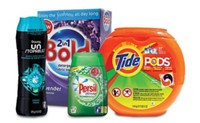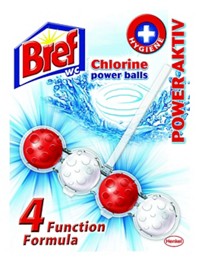Advertisement
Grab your lab coat. Let's get started
Welcome!
Welcome!
Create an account below to get 6 C&EN articles per month, receive newsletters and more - all free.
It seems this is your first time logging in online. Please enter the following information to continue.
As an ACS member you automatically get access to this site. All we need is few more details to create your reading experience.
Not you? Sign in with a different account.
Not you? Sign in with a different account.
ERROR 1
ERROR 1
ERROR 2
ERROR 2
ERROR 2
ERROR 2
ERROR 2
Password and Confirm password must match.
If you have an ACS member number, please enter it here so we can link this account to your membership. (optional)
ERROR 2
ACS values your privacy. By submitting your information, you are gaining access to C&EN and subscribing to our weekly newsletter. We use the information you provide to make your reading experience better, and we will never sell your data to third party members.
Consumer Products
So you want to start a detergent company
A look behind the scenes at how web-based cleaning product businesses are launched
by Michael McCoy
January 26, 2020
| A version of this story appeared in
Volume 98, Issue 4

Almost 10 years ago, Sean Busch and Paul Tracy got an idea for a company. Friends from Austin, Texas, with e-commerce backgrounds, they both had newborn daughters and were concerned about the cleaning products their girls would be exposed to. They had witnessed the success of online-first household product firms—notably the Honest Company, formed in 2012 by the actress Jessica Alba—that emphasize natural ingredients. But they’d also heard that some so-called green cleaners weren’t very effective.
So in 2013 they launched Puracy, a web-based company touting cleaning products that are safe for families and the environment and better performing than traditional petrochemical-based cleaners. Its tagline: “We make high-quality natural products that actually work . . . really well.”
By combining natural surfactants and other ingredients with internet sales, Busch and Tracy helped pioneer a new segment of the cleaning product industry. These newcomers haven’t pushed traditional brands like Tide and Purex into irrelevance, but the big companies that make those primarily store-sold detergents are definitely taking notice.
A year ago, Unilever acquired the Laundress, a New York City–based maker of ecofriendly detergent, fabric care, and home cleaning products sold mostly online. The parties didn’t disclose the price, but some reports put it at $100 million.
And in September 2019, the web-based cleaning product maker Truman’s received $5 million from investors led by the German consumer product giant Henkel. Founded early in 2019, Truman’s sells concentrated cleaner cartridges under a subscription plan. Customers get a starter kit that includes refillable plastic bottles. Then every 6 months they receive a box containing cartridges filled with all-purpose, floor, glass, and shower cleaners.
For its part, the Honest Company has taken several rounds of venture capital investment that value it in the neighborhood of $1 billion. It has annual sales estimated at $300 million and, in addition to selling on the internet, now offers its products at Target, Costco, Whole Foods, and other retailers.
Such investments aside, the cleaning product sector is playing catch-up in the online space, says Jamie Rosenberg, a senior global analyst at Mintel, a consumer market intelligence firm. Compared with beauty, personal care, and baby products, household products are not purchased online as frequently, according to a 2018 survey by Mintel and Lightspeed of internet users who shop online. On the other hand, the same research shows that when it comes to future online purchases, more consumers would buy cleaning products than products in other categories.
One reason cleaning products are trailing on the web, Rosenberg says, is that cleaning brands have conflicting priorities in the packaging realm. “On the store shelf, bigger is better; packaging is designed to stand out,” he says. “By contrast, less is more in online retail.”
Although online retailers often migrate into stores once they gain enough of a following, Rosenberg doesn’t see a brick-and-mortar presence as their main goal. Overall online retail sales reached $2.1 trillion worldwide in 2017, according to Mintel, which projects another $1.7 trillion in sales by 2021—an 81% gain in just 4 years. At that point, online will represent 14% of all retail sales.
One reason firms like to sell online is that it allows them to interact directly with consumers in a way that selling through a retail intermediary doesn’t, Rosenberg notes. “It’s a channel that creates more immediate and greater quantities of consumer feedback,” he says.
Puracy’s Busch is one marketer who craves the connection to the customer that online retail provides. Soon after the company logged its first sales, Busch’s team began to aggregate customer comments from its website, Facebook posts, emails, and phone calls, using them to guide product improvement. “When you start taking tens of thousands, hundreds of thousands of pieces of feedback, it becomes this ongoing R&D engine that is the general public and how they use your products,” Busch says.

Puracy uses the feedback to constantly tinker with and upgrade its products, most of which have been through multiple iterations.
“We really have a pulse on what the general public is feeling, and being digitally native, we’re able to move quickly in terms of turning around a product that fits those needs,” Busch says. “We don’t have to wait for our next line review to be on the shelf. We can just come to market, sometimes in a matter of weeks or months, with something new.”
Puracy launched with four standard household cleaners. Today the firm markets dozens of products for home, personal, and baby care, through its Puracy.com website and select Target stores. It sells about 10,000 units a day, says Busch, who is now one of 11 employees.
But starting a cleaning product company that consumers will keep coming back to takes more than good customer interaction and website design skills. It requires actual products made with quality ingredients. For most cleaning product start-ups, that means finding partners that offer ingredients, formulation services, and manufacturing of finished goods.
Puracy’s first production partner was Pacific Sands, a Wisconsin-based contract manufacturer formed by two former SC Johnson chemists. Working with ingredient requirements and performance parameters established by Busch and his team, the contractor created a hand soap, a hard-surface cleaner, a dish detergent, and a laundry detergent.
The first production runs were just 200–600 units, Busch recalls, but the products caught on, and Puracy quickly outgrew the space available at Pacific Sands. So it shifted to Bayscience Formulators, a contract formulator and packager in Dudley, Massachusetts.
Andrew Slesinski, who started at Bayscience as a formulation chemist and is now a sales executive there, says Puracy stands out among his firm’s customers in its desire to continually upgrade. “We’re constantly improving the products they have in the market,” he says. “Not one formula we started with is the same that it was 5 years ago, 4 years ago, 3 years ago, even 2 years ago.”
The formulation maestro behind most of Puracy’s new and updated products is a Bayscience veteran who prefers to remain anonymous. Puracy’s website calls him a chemist with a PhD from the Massachusetts Institute of Technology, nearly a dozen patents, and over 40 years of industry experience.
“We both have extremely disruptive personalities,” Busch says of the chemist. “He’s just an incredibly bright guy that loves to kind of push against big business.” And Puracy lets him do this, Busch adds, by not imposing any budgetary “guardrails,” allowing him to try things that other companies might not try.
Busch and Slesinski point to Puracy’s laundry detergent and fabric stain remover as examples of products that emerged from the firm’s iterative improvement process and now perform as well as the big-company competition, without synthetic ingredients.
When the laundry detergent launched as one of Puracy’s original products, it was 4 times as concentrated as a traditional detergent and contained two enzymes. Then the cleaning product company Method came out with an 8-fold-concentrated detergent, and Busch challenged Bayscience to get his product up to 10-fold concentration, with three enzymes.
More recently, Puracy worked with Bayscience to add a fourth enzyme plus two specialty additives: zinc ricinoleate, a castor oil derivative that provides odor control, and carboxy inulin, a chicory root derivative that chelates calcium and magnesium ions in the wash water.
Similarly, Puracy launched its stain remover at the end of 2014 with three enzymes. About a year later it upgraded the formula to contain an industry-leading six stain-degrading enzymes: protease, amylase, lipase, pectinase, mannanase, and cellulase. “It’s difficult to produce a product that has six enzymes, and those six enzymes will be just as effective on day 1 as they are 21 months later,” Busch says.
Puracy seems to take its commitment to natural ingredients seriously. The firm has started using ethoxylated alcohol surfactants made by Croda, which operates the first US facility to convert plant-derived ethanol into ethylene oxide. Before that facility opened in Delaware in 2018, Slesinski says, cleaning product makers seeking to be all-natural either had to avoid the workhorse ethoxylated surfactants or compromise by allowing a synthetic ingredient into their wares.
For such product upgrades, Bayscience is Puracy’s partner for both formulation and manufacturing. The company and a sister organization, Webco Chemical, have a total of about 100 employees, Slesinski says. Their 22,000 m2 facility includes high-speed filling and labeling lines for consumer products and other packaged goods.
Rather than a one-stop-shop like Bayscience, aspiring cleaning product entrepreneurs can try a pure-play formulator such as Freelance Formulations in Bartow, Florida. Vanessa Thomas, a cosmetic chemist, started the company in 2017 after about 15 years working for contract manufacturers. The firm now has five employees and is looking to expand its staff and lab space this year.
In the beginning, Freelance Formulations focused solely on personal care, but recently it has been receiving inquiries from people seeking to get into the cleaning product business, Thomas says. The transition hasn’t been difficult. “It’s almost the same concept,” she says, “because they want to take out sulfates, just like they do in the cosmetic industry, and take out the harsh cleaners and substitute them with green.”
Cleaning industry customers, Thomas says, might be people who want to bring a homemade concoction to the world. Or people who have experienced irritation or allergies from certain ingredients and want to create a product for themselves and people like them. Or perhaps people who have embraced a particular ingredient and want to build a product around it. “You have people that are so passionate, and it’s their dream to do this,” she says.
Potential customers fill out a questionnaire on the firm’s website and, after signing a nondisclosure agreement, have a free consultation with one of Freelance Formulations’ chemists about their goals for their product. The company then provides a quote; if the customers accept, they put half down.
That triggers a kickoff call about the finer details: intended function of the product, benchmark products, specific ingredients, and the like. Three weeks later, Freelance sends a sample in the mail. Customers can go through three revisions to get the product just right. After paying the balance, the customers get the official formula for the product.

A basic formulation package can cost as little as $5,000, Thomas says. Her team can refer customers to manufacturers and packaging vendors that can turn the formula into a consumer product, also for as little as $5,000 for an initial run of 500 pieces or so.
Some of Thomas’s customers own a salon or natural product store where they initially sell their new products; others set up a store on Amazon. It’s not until they’ve established a sizable sales base that most customers consider approaching brick-and-mortar retailers, she says.
Access to a formulation expert like Thomas or Bayscience’s anonymous chemist is critical to success in starting a cleaning product business, but so are the right ingredients. Unlike big cleaning product makers such as Procter & Gamble or Henkel, start-ups typically don’t generate enough sales to justify purchasing directly from ingredient manufacturers. Instead, they use distributors that are focused on consumer product markets.
Slesinski points to Bayscience’s longtime relationship with Maroon Group, an Ohio-based firm that calls itself the third-largest specialty chemical distributor in the US. “They’ve been one of our critical partners,” Slesinski says.
Walter Martish III, the president of Maroon’s care division, says his firm provides ingredients to formulators like Bayscience as well as small manufacturers, start-ups, and even some larger firms, such as Estée Lauder. “We’re flexible and nimble, so we don’t hold them to a minimum of a 55 gal drum,” he says. “Would you like a pail? Would you like a concentrate? Would you like a bespoke product?”
In addition to providing ingredients, Maroon operates its own formulation labs: home care is in Boca Raton, Florida; personal care is in Quonset, Rhode Island. The company also provides custom packaging of finished products in orders of fewer than 1,000 units—too small for a firm like Bayscience. And a sister company, Lincoln Manufacturing, makes preservative systems for home and personal care products.
Advertisement
Like Slesinski and Thomas, Martish is seeing more start-up cleaning and personal care product companies coming through his firm’s doors. “Everybody has a story or a vision,” Martish says. “It’s just marrying up with the right raw materials to make it successful.”
Even some big chemical manufacturers are feeling pull-through from the burgeoning start-up world. Kip Sharp, US senior R&D manager at the Brazilian surfactant producer Oxiteno, notes that most start-ups are buying ingredients at volumes best handled by distributors. Still, Oxiteno does find itself working with small companies at its labs in Hattiesburg, Mississippi, if, for example, they connect at a trade show or a firm comes across Oxiteno’s website and reaches out directly.
“We want to be helpful,” he says. “When you see the emails or get the calls—they don’t know who to ask for or even exactly what they are looking for.”
Oxiteno has a series of basic cleaning and personal care product formulas that customers can build on. Yet, unlike a specialist such as Freelance Formulations, Oxiteno isn’t prepared to help customers develop a new product from scratch. Rather, it might assist with a specific problem, such as a product that is foaming too much or a single-dose product that is bleeding out of its water-soluble pouch.
Sharp, who works for a firm with facilities in Latin America and, recently, Texas, says he’s seeing more and more start-up and online cleaning product companies dotting the landscape, and not just in the US. “At one time, everything went centralized to the big brands,” he says. “Now it’s going completely opposite and it’s becoming more decentralized and away from the big brands—even though the big brands are buying some of these little guys.”
At Puracy, Busch is determined to further that decentralization by doing what has worked for him from the start: listen to customers. “The customer-centric mentality is tremendous for us,” he says. “I think that people will have a really different experience because all the feedback that they share—especially the critical stuff—makes it all the way up to me, all the time.”
Busch knows that Puracy, unlike a Procter & Gamble or a Unilever, doesn’t have a legacy to fall back on. It’s got to get the product right or make things right fast. “When somebody tries our product for the first time, we have one shot. We cannot rest on the laurels of a brand like Tide.”
Busch argues that Puracy almost always makes that shot. “You can say you don’t like our scent or the design of our label, but rarely do people tell us they don’t like our product,” he says. “Because for us, it’s the long game. We’re invested in this for years and years and years, and we want to be a part of people’s households.”





Join the conversation
Contact the reporter
Submit a Letter to the Editor for publication
Engage with us on Twitter